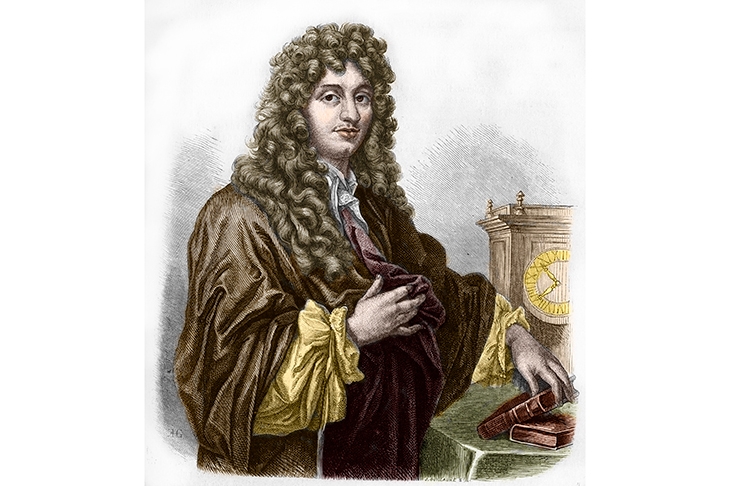This book, soaked like the Dutch Republic itself ‘in ink and paint’, is enchanting to the point of escapism. The author calls it ‘an interior journey into a world of luxury and leisure’. It is more than that. What he writes of Christiaan Huygens’s milieu is true also of his book: ‘Like a Dutch interior painting, it turns out to contain everything.’
Hugh Aldersey-Williams says that Huygens was the first modern scientist. This is a delicate argument to make: the word ‘scientist’ didn’t enter the English language before 1834. And he’s right to be sparing with such rhetoric, since a little of it goes a very long way. What inadvertent baggage comes attached, for instance, to the (not unreasonable) claim that the city of Middleburg, supported by the market for spectacles, became ‘a hotbed of optical innovation’ at the end of the 16th century? As I read about the collaboration between Christiaan’s father Constantijn (‘with his trim dark beard and sharp features’) and his lens-grinder Cornelis Drebbel (‘strapping, ill-read, careless of social hierarchies’) I kept getting flashbacks to the Steve Jobs and Steve Wozniak double-act in Aaron Sorkin’s film.
This is the problem of popular history, made double by the demands of explaining the science. Secretly, readers want the past to be either deeply exotic (so they don’t have to worry about it) or fundamentally familiar (so they don’t have to worry about it).

Aldersey-Williams steeps us in neither fantasy for too long, and as a result Dutch Light is an oddly disturbing read: we see our present understanding of the world and many of our current intellectual habits emerging through the accidents and contingencies of history, through networks and relationships, friendships and fallings-out. Huygens’s world is distinctly modern — disturbingly so: the engine itself, the pipework and pistons, without any of the fancy fairings and decals of liberalism.







Comments
Join the debate for just £1 a month
Be part of the conversation with other Spectator readers by getting your first three months for £3.
UNLOCK ACCESS Just £1 a monthAlready a subscriber? Log in